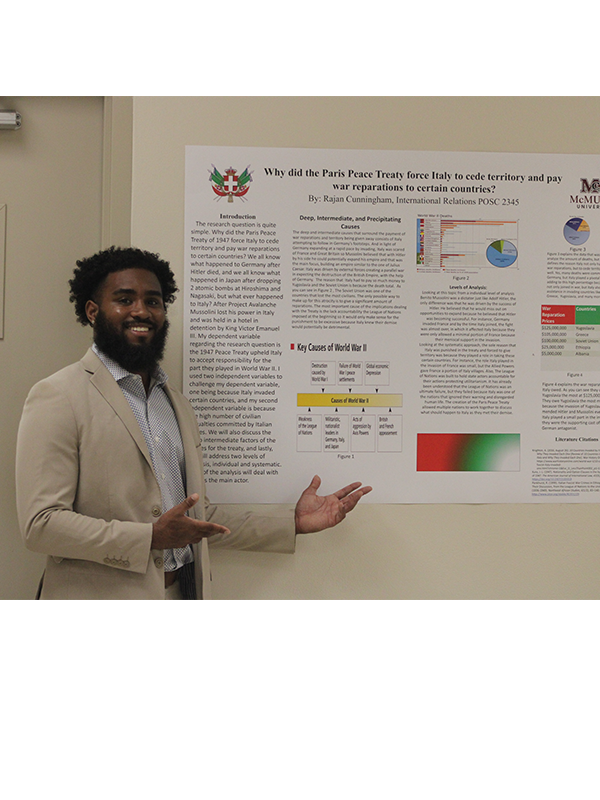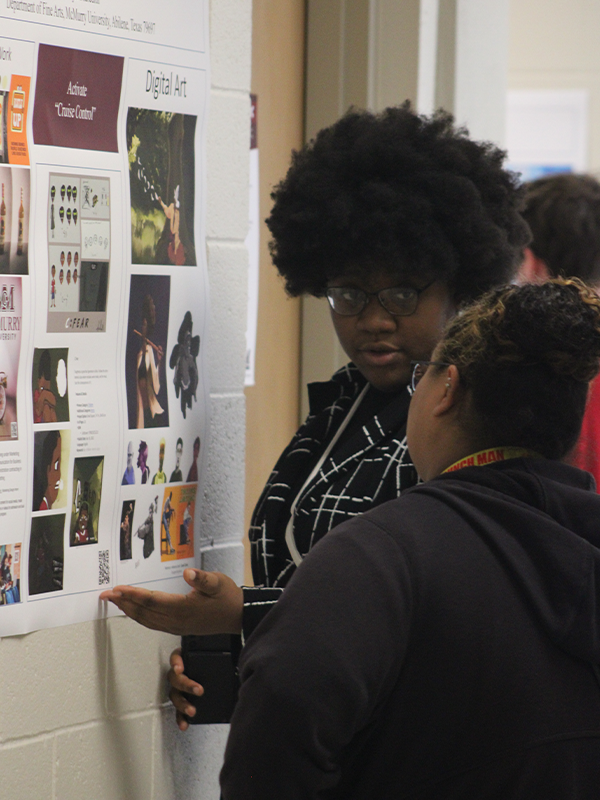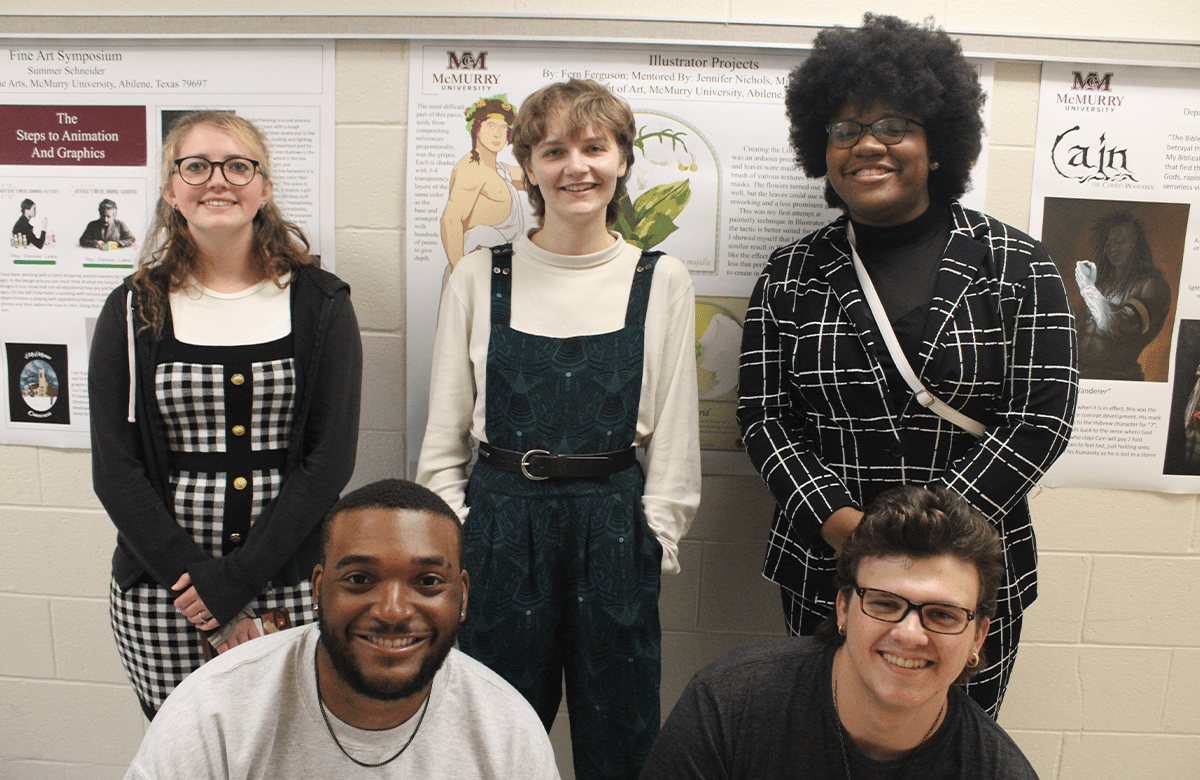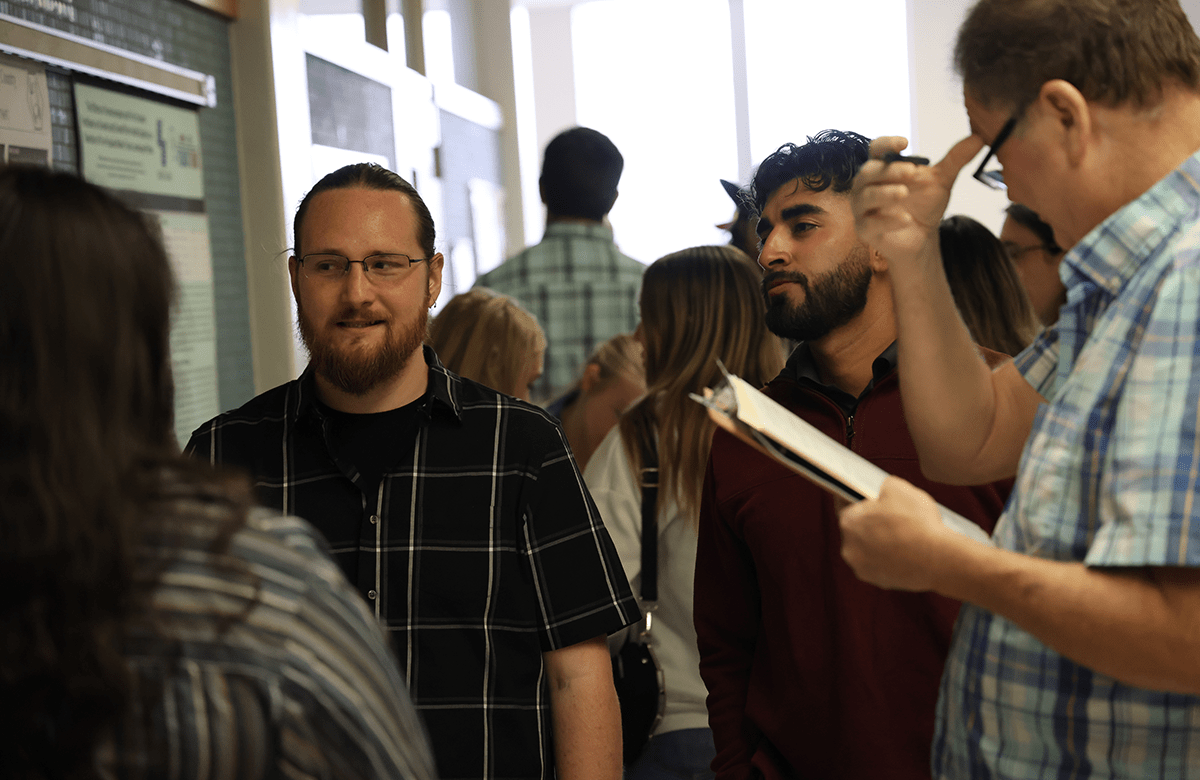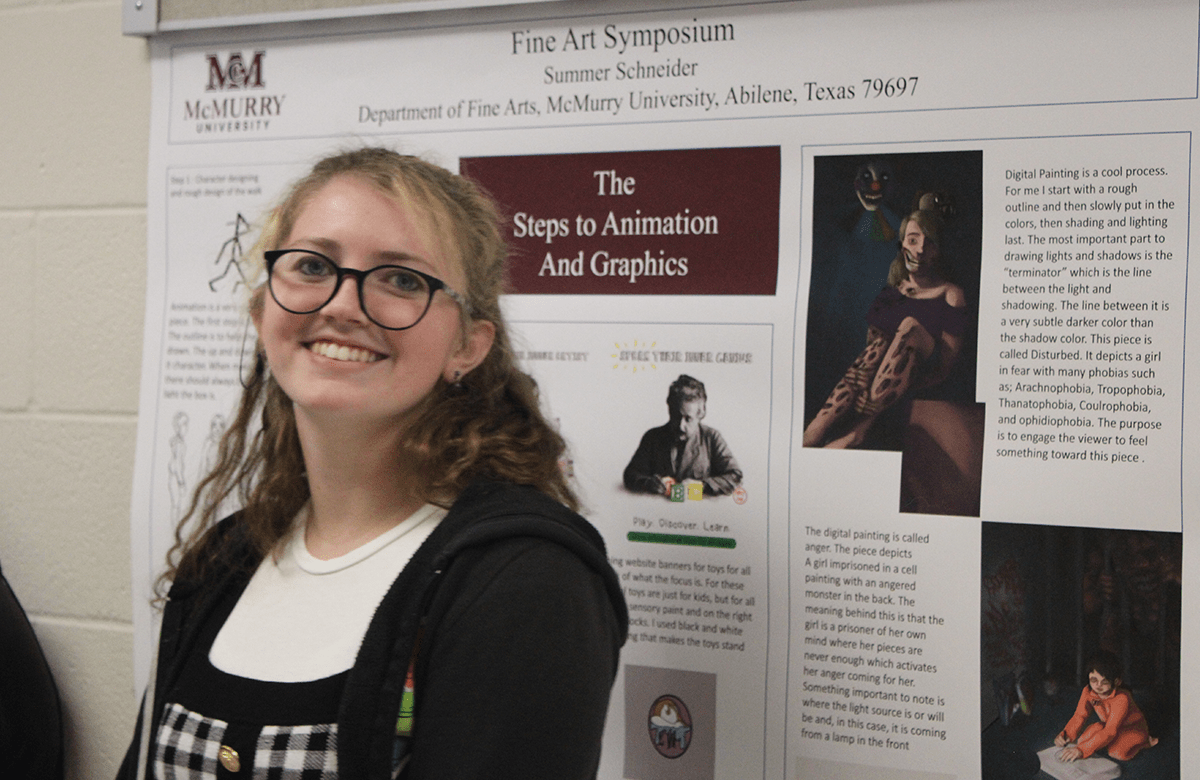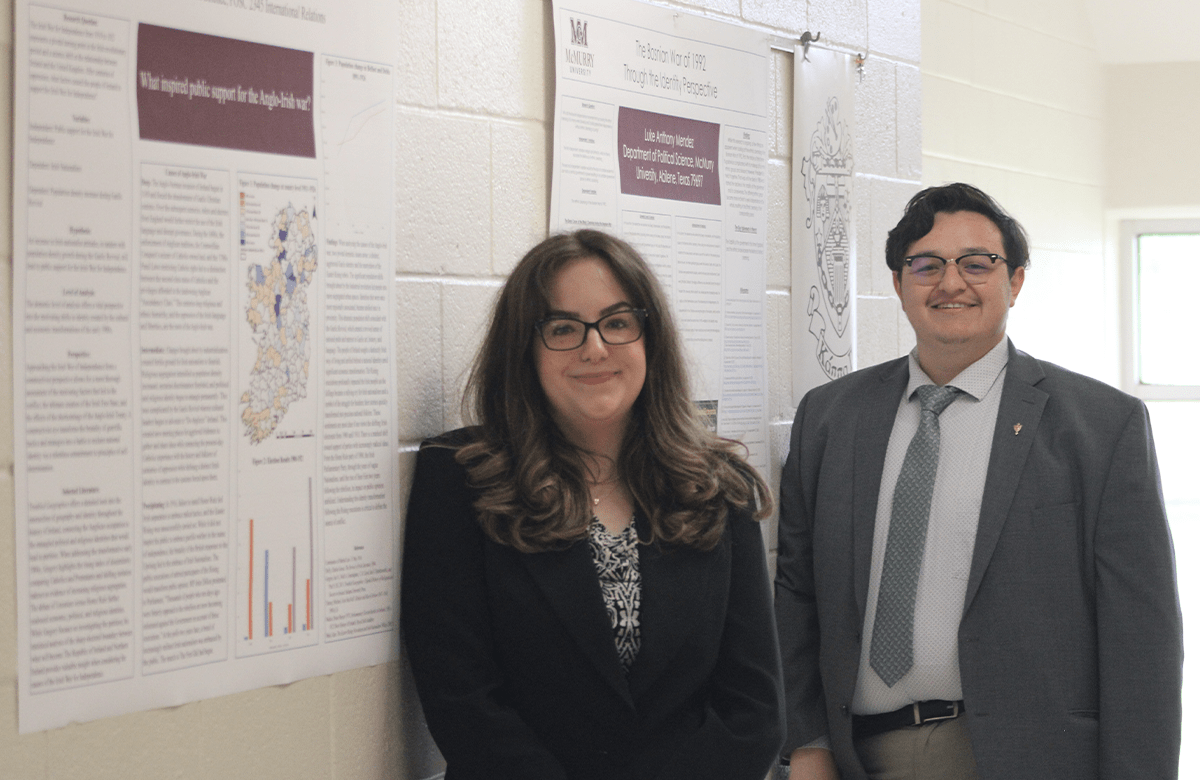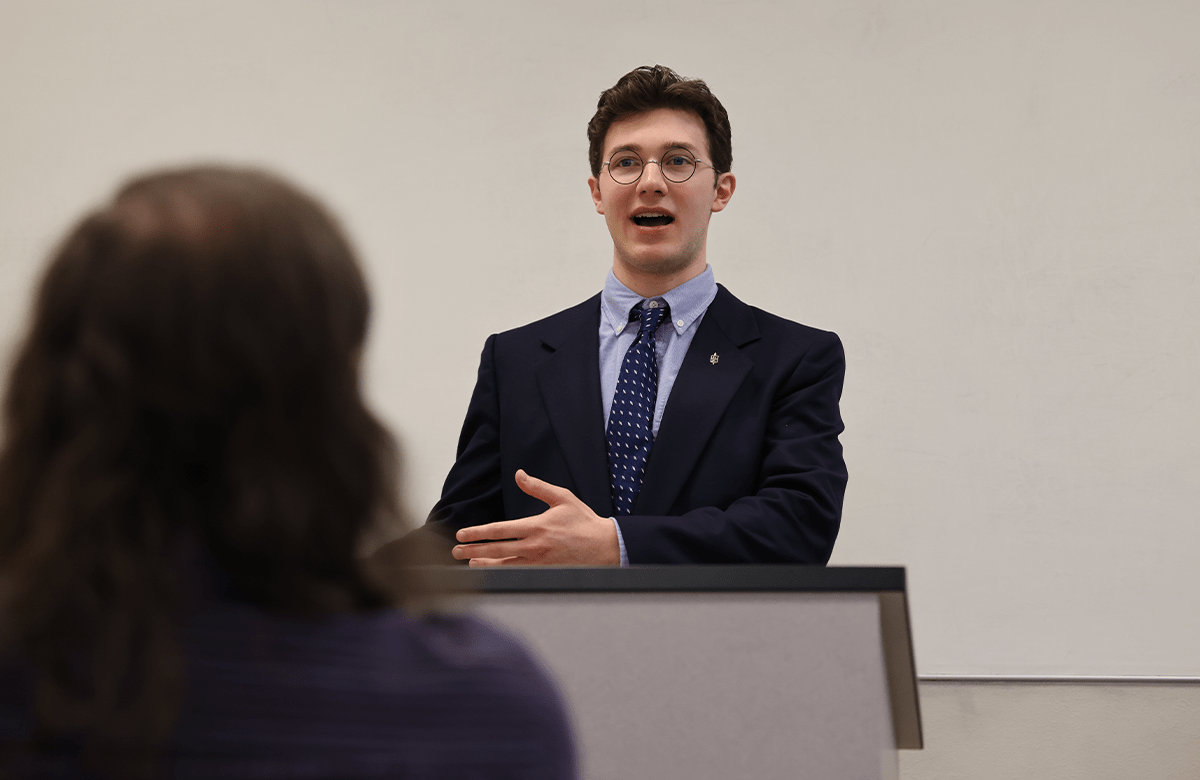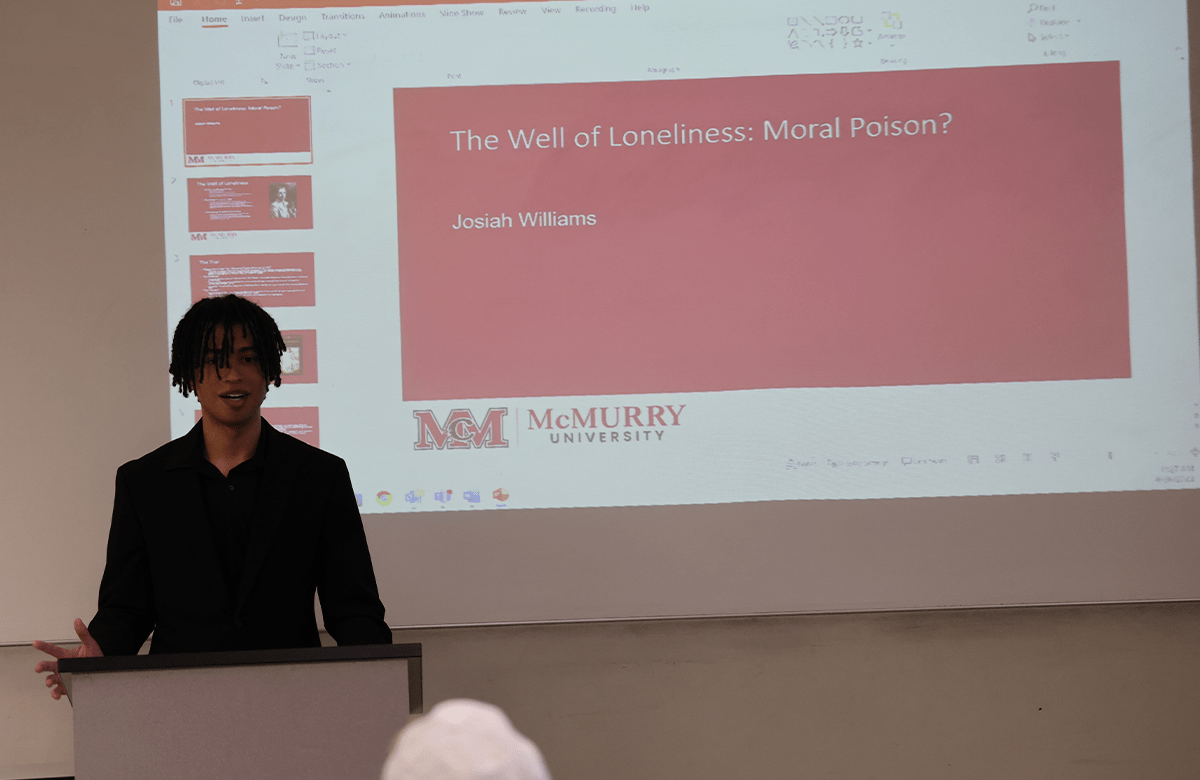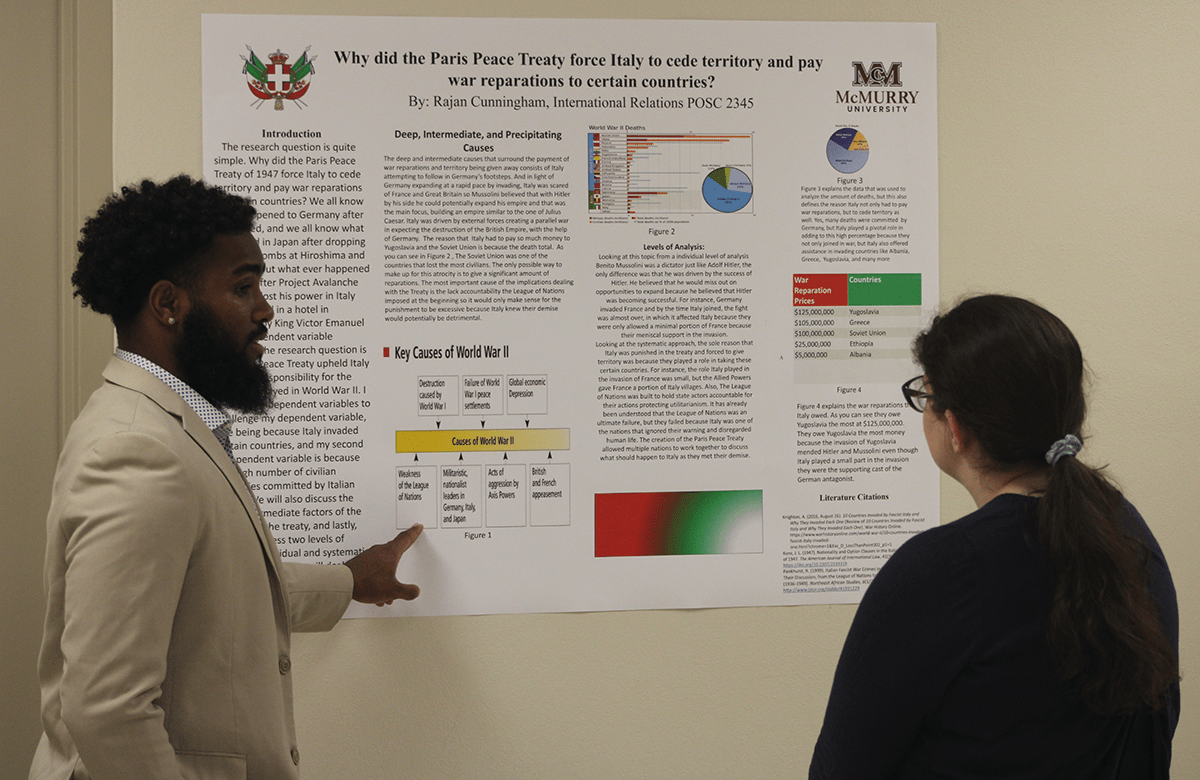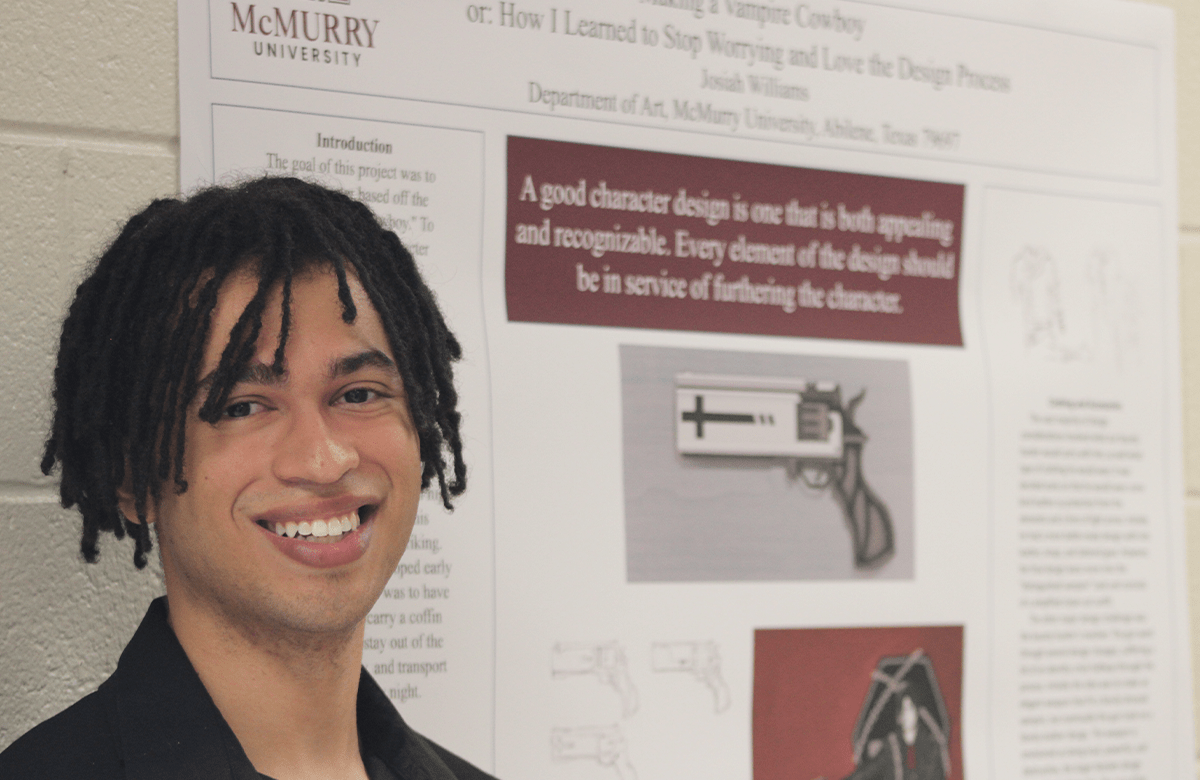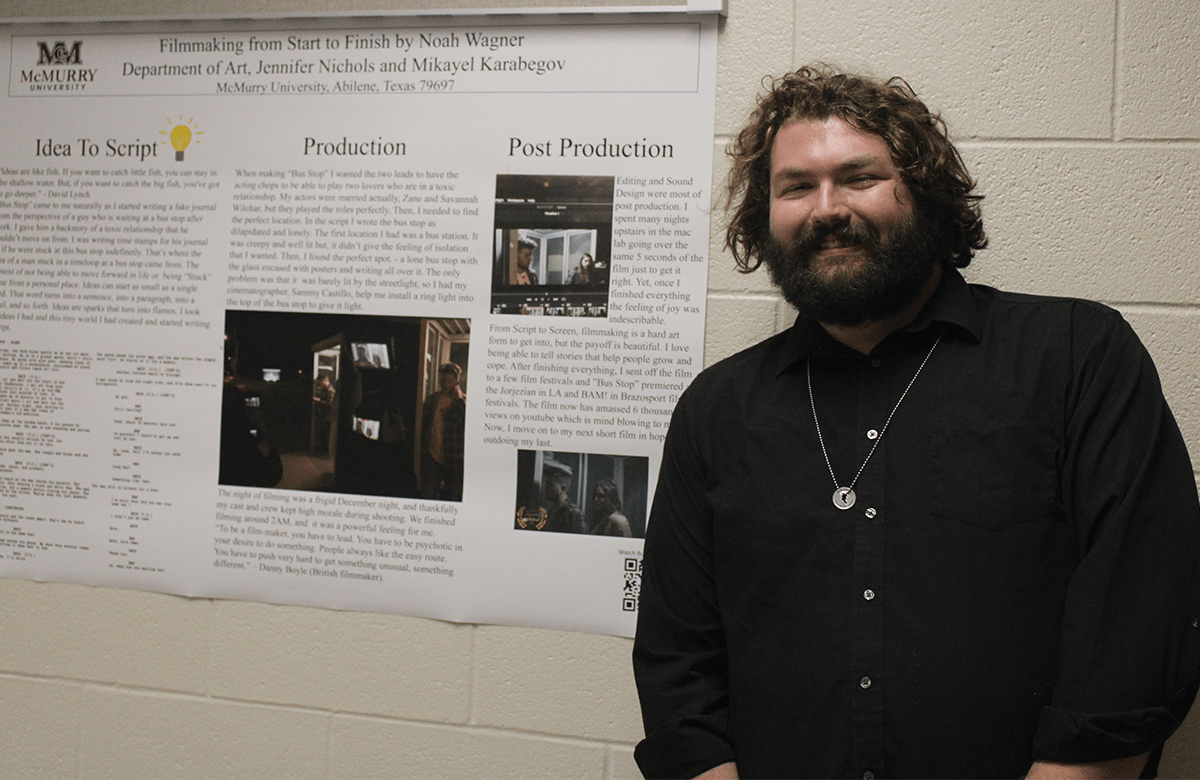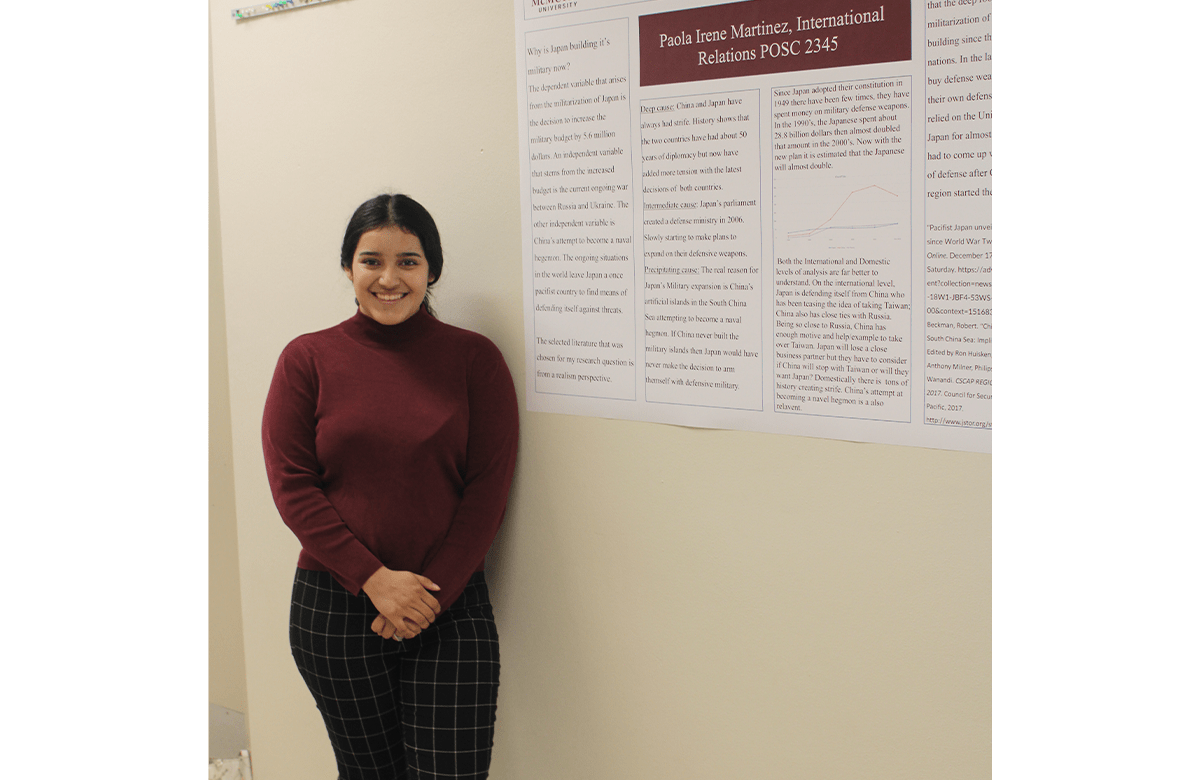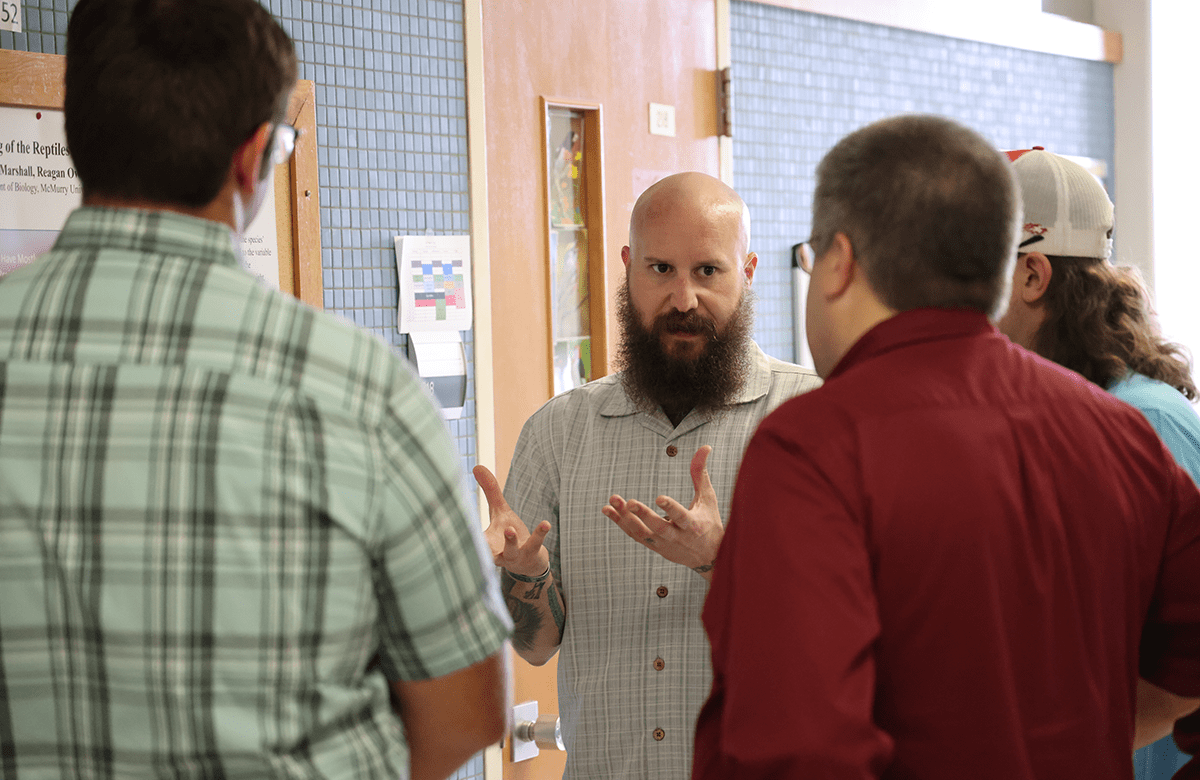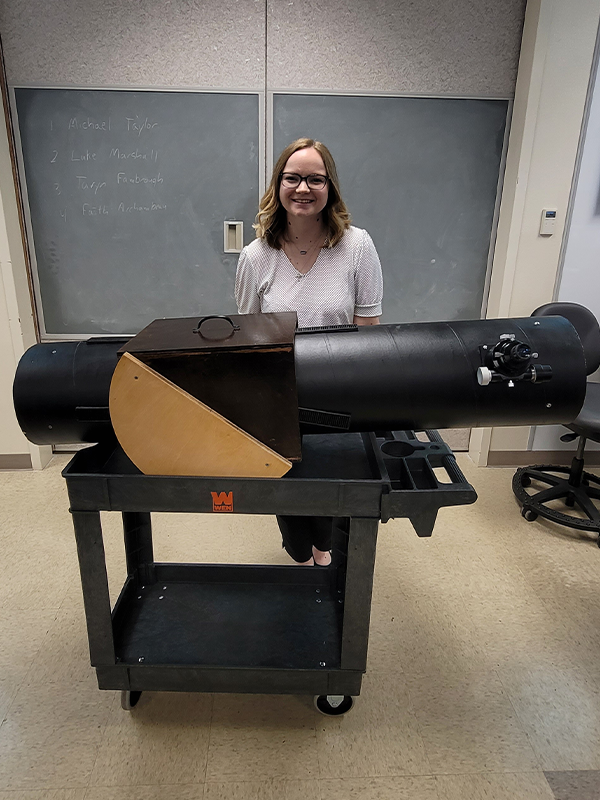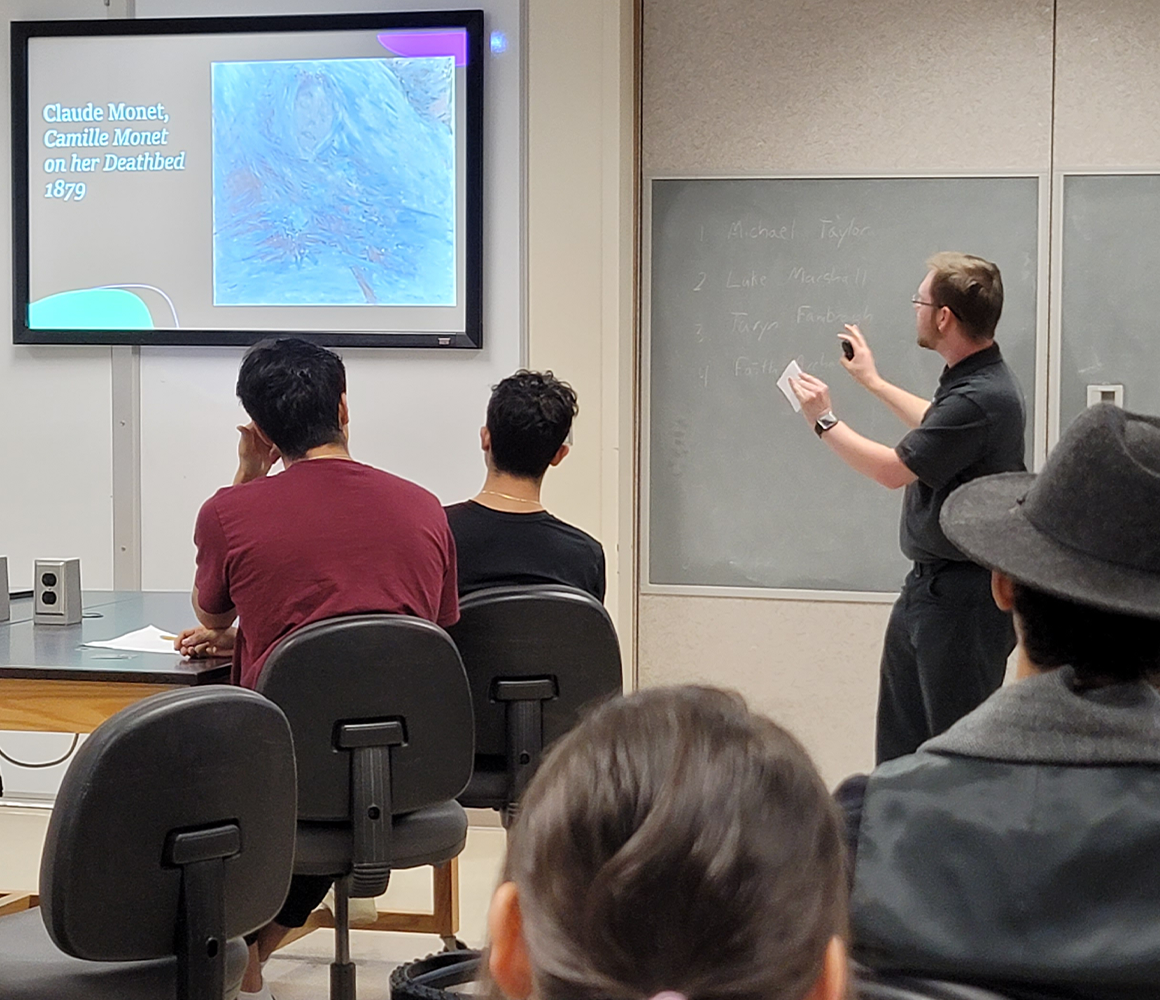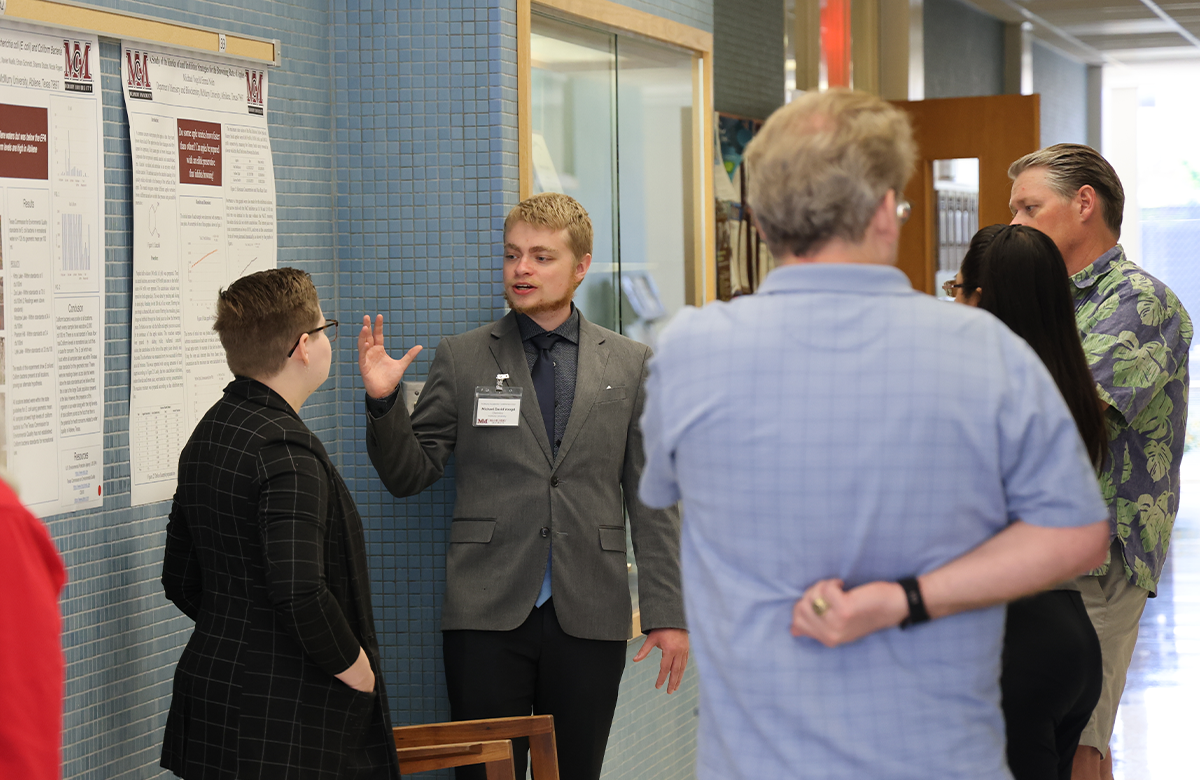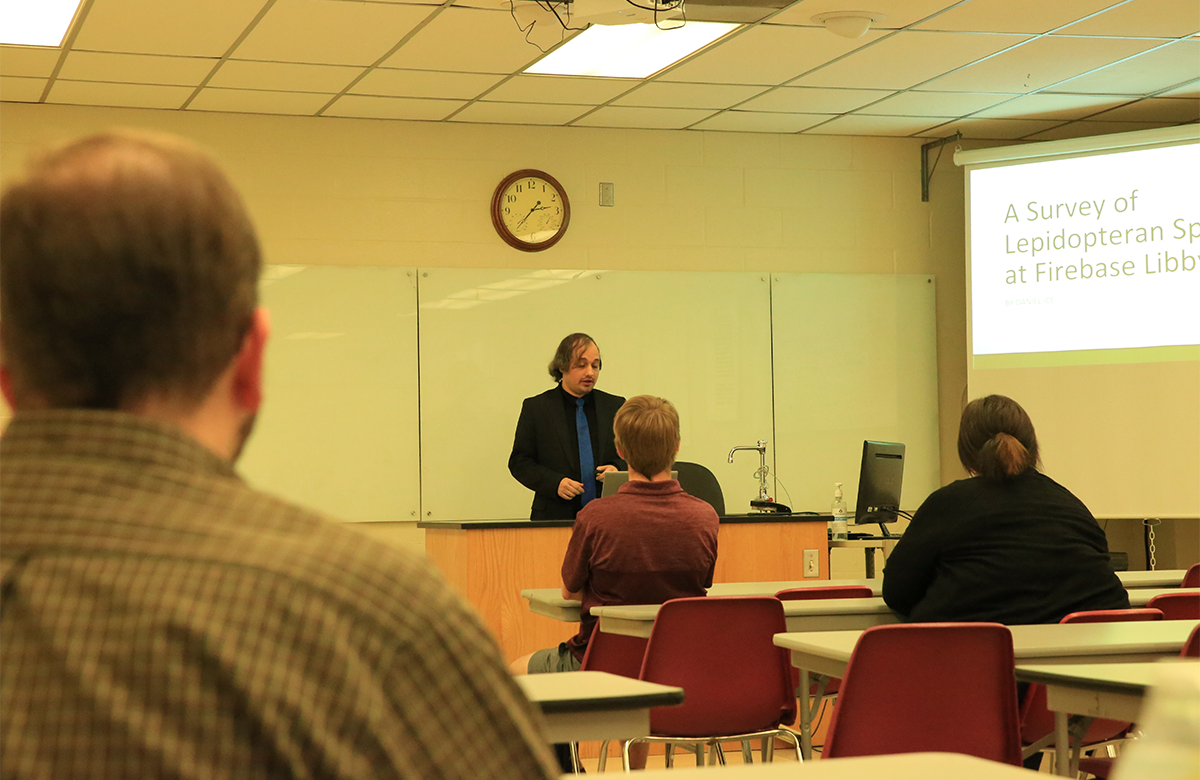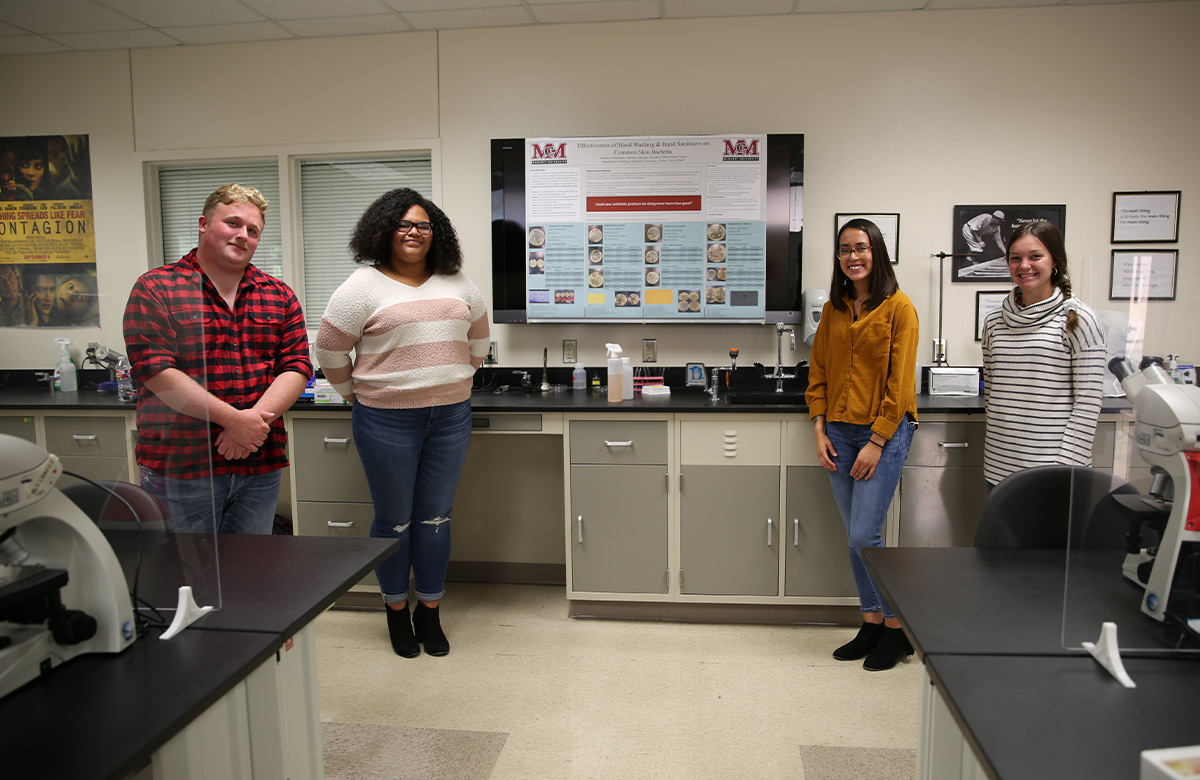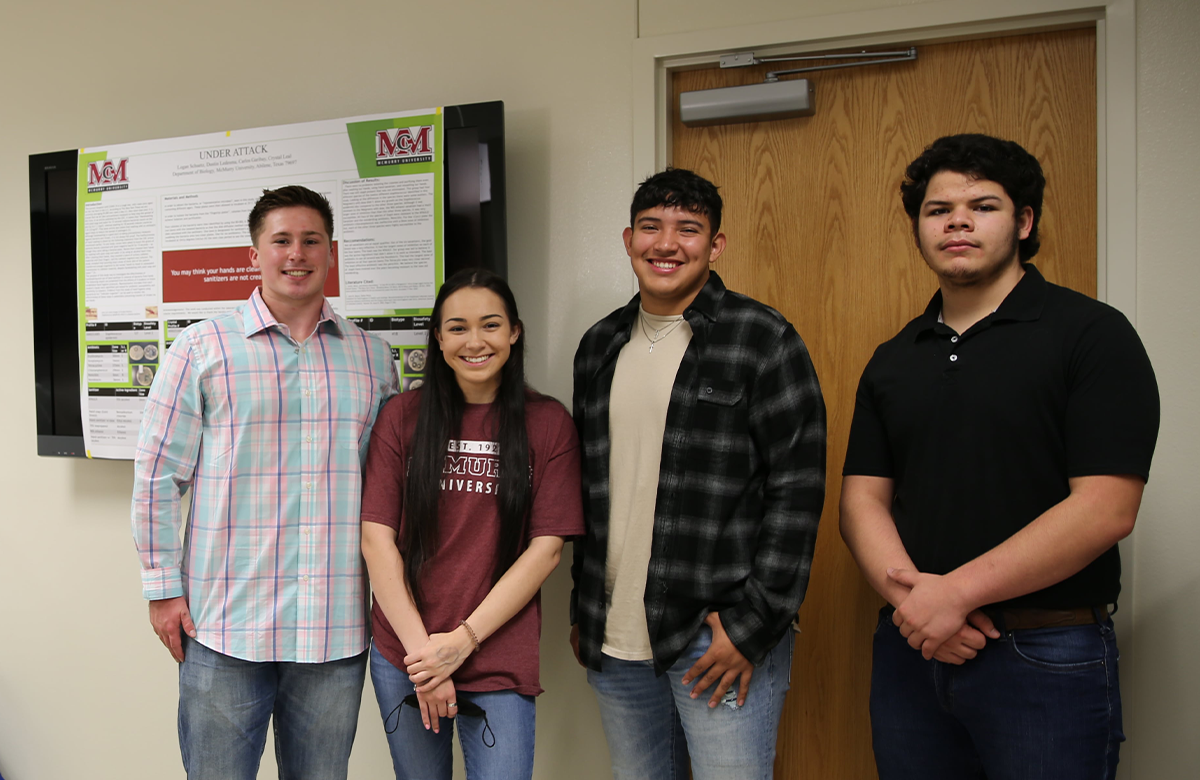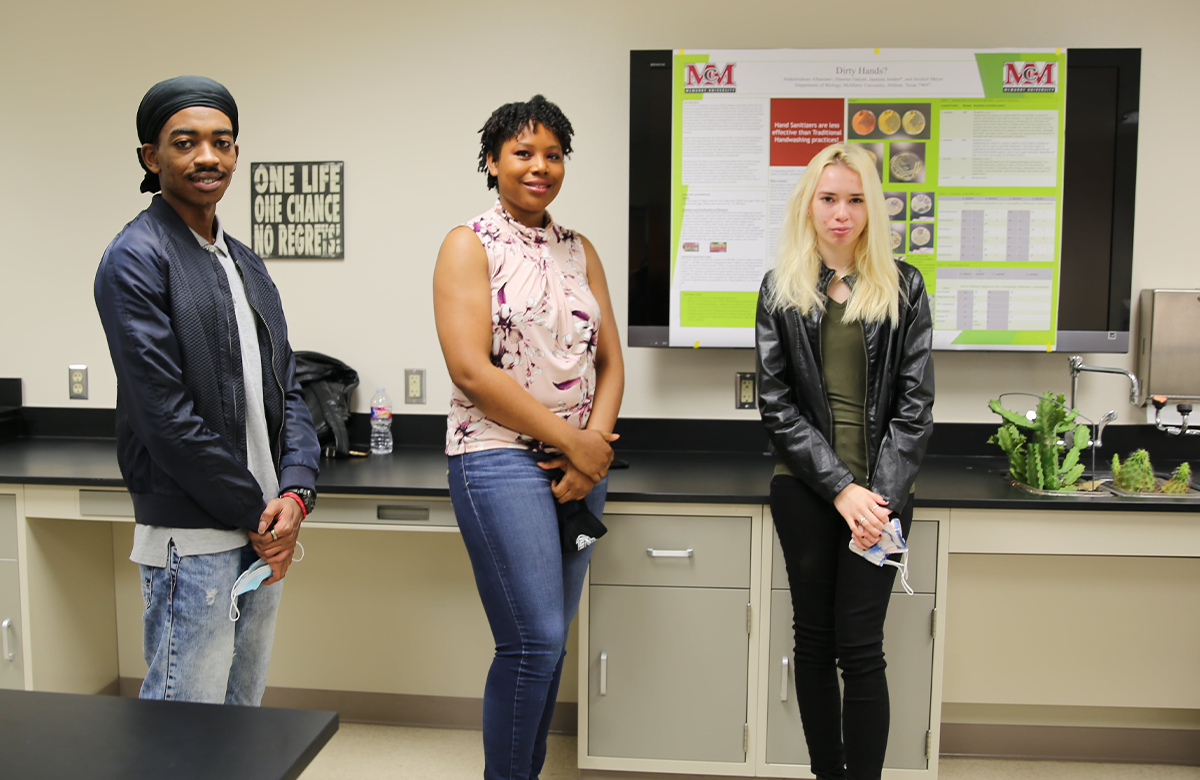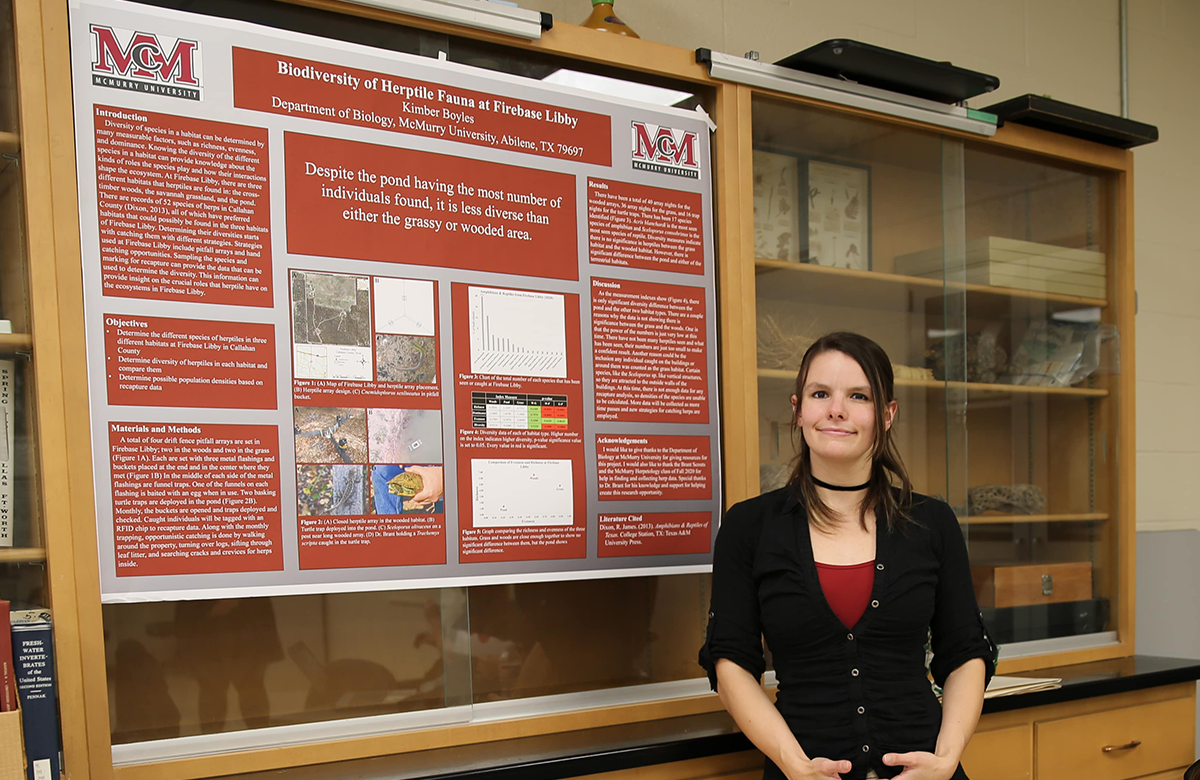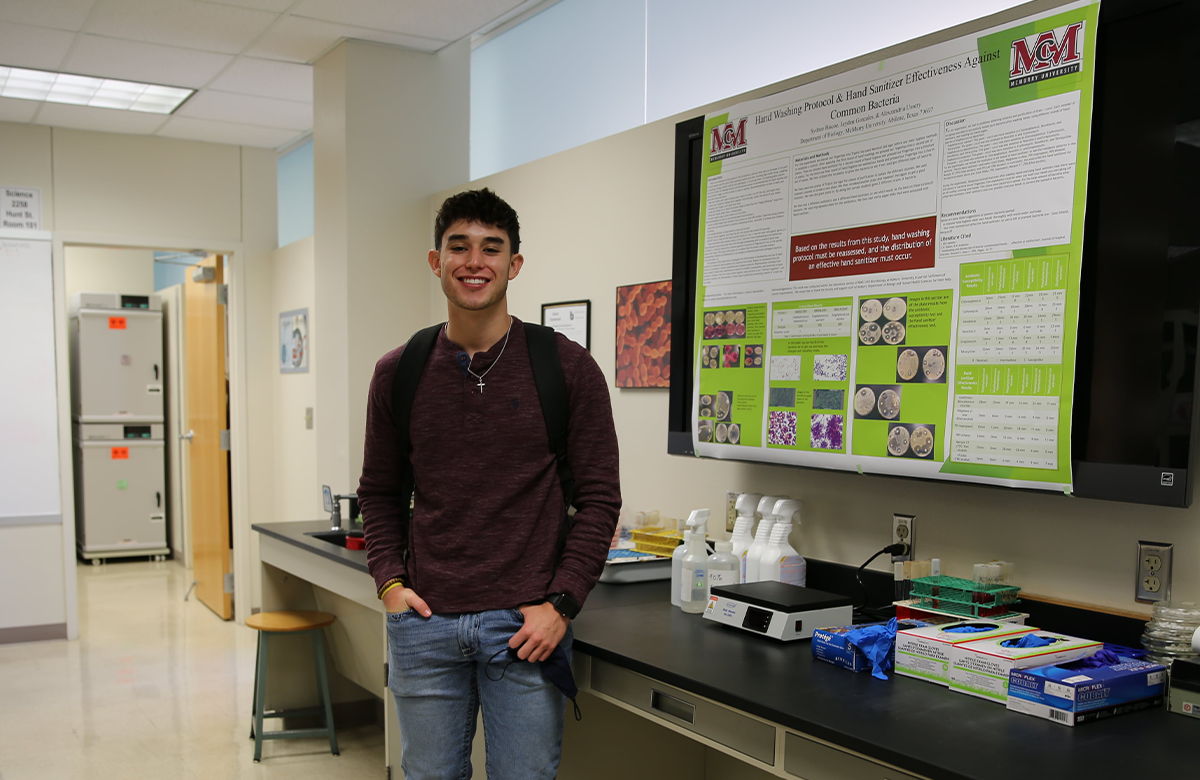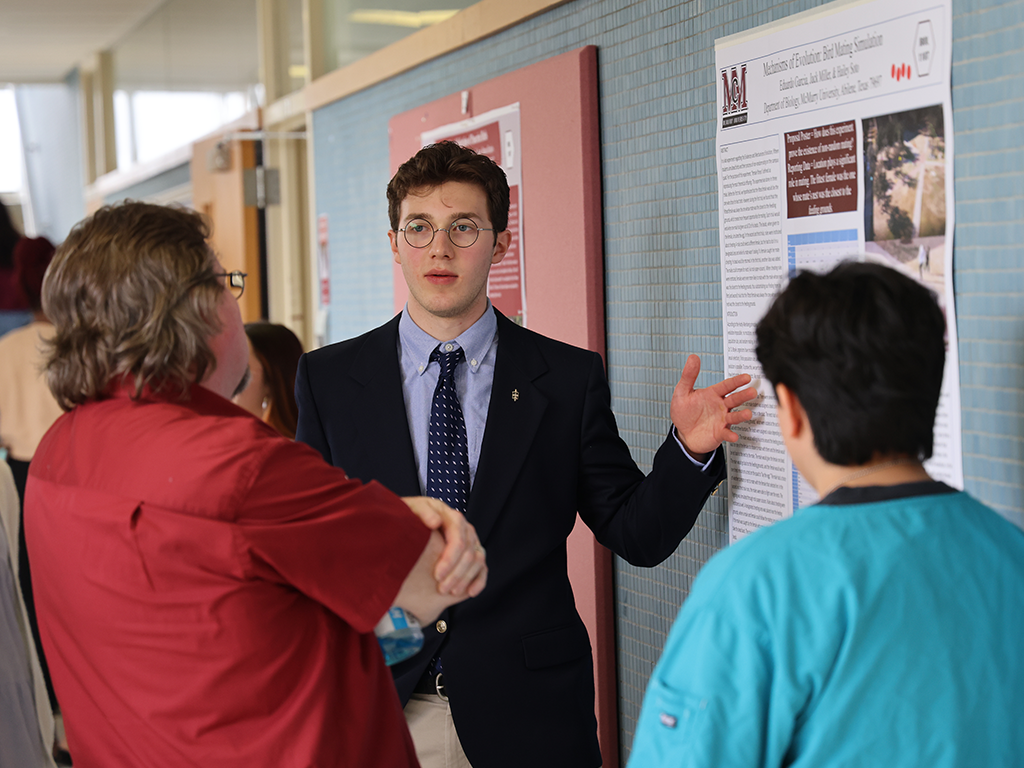
About
McMurry University’s Symposium for Student Research, Scholarship, and Creative Works (formerly called the Academic Conference). The symposium takes place each Spring semester and provides an opportunity for students at all levels to present their research, scholarship, and creative works to the McMurry community. Classes are suspended on this day to allow all faculty and students to participate in the Symposium. Students are strongly encouraged to participate either by presenting or by attending and engaging with those who are presenting. The Student Symposium is a great way to learn what our students are working on under the direction of their faculty mentors.
We strongly encourage students of all majors who are engaged in supervised research, scholarship, or any other creative work to present on their preliminary, ongoing, or completed works in some form at the symposium. Individual and group presentations are welcomed. Student presentations, whether oral, poster, exhibit, or performance, are organized by academic disciplines and will occur in various buildings across campus. In addition, this year we are introducing a special event, the 3-min thesis competition. More information to follow.
There will be a Key Note Address in the morning to kick off the Symposium and a Plenary Address in the afternoon as the capstone event. There will also be a social after the Plenary address for all the student presenters, their families, and their faculty mentors.
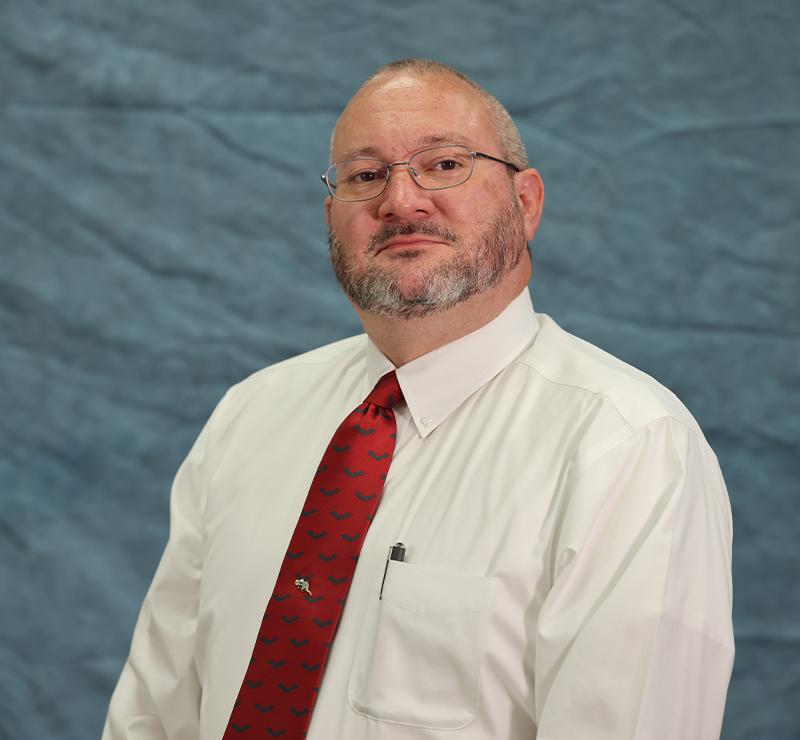
Keynote Address
Dr. Joel Brant (2022 E.E. Hall Scholar)
Radford Auditorium: 9:00 am – 10:00 am
Ecological Investigations into the Vertebrate Fauna at Firebase Libby
Ecologists seek to understand how living things operate in their world. Often, we must travel to where the organisms are to conduct our investigations. Access to habitat is often the limiting factor for ecological research. In 2014, Reverend Bill Libby donated his 160-acre property to McMurry University to be used as a field station for biological research. Rev. Libby’s generosity has provided us with an opportunity to gain a deeper understanding of the life in the Big Country of Texas. Dr. Brant will discuss his efforts to characterize the vertebrate communities (mammals, reptiles, amphibians, & birds) at Firebase Libby. These investigations have touched on the ecological topics of biodiversity, competition, population responses to environmental change, and habitat selection.
Past Presentations
Registration Instructions
Ensure you have all of the following information ready before you start the registration process.
1. Student ID
2. Department and Major
3. Faculty Mentor’s Name, Email Address, and Department
4. Co-Presenters’ and Co-Authors’ names (if applicable)
5. Title of Presentation
6. Presentation Type (Oral, Poster, 3-minute Thesis, Performance, Exhibit)
7. Method of inquiry:
a. Quantitative analysis (e.g., survey or experiment)
b. Critical analysis (e.g., analysis of literature, art, etc.)
c. Qualitative (e.g., interview or autoethnography)
d. Review (e.g., Literature review)
e. Performance/fine arts (e.g., dance, film, photography, etc.)
f. Mixed methods (e.g., incorporates multiple methods of inquiry)
g. Case study (e.g., study of a specific person, institution, or place)
8. Abstract (350 words or less) in PDF format (Be sure to include the presentation title and your name at the top of the page above the abstract.)
9. Key words to best describe your presentation
10. Check your email for confirmation of your registration
11. Please send any questions about this process to draud.matt@mcm.edu

